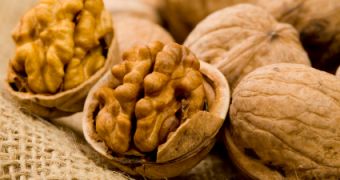A recent study performed on mice by the researchers at Marshall University showed that, when a modest amount of walnuts is included in the regular diet, this can reduce the risk of breast cancer.
The report in the journal Nutrition and Cancer states that the amount of walnut in the test diet equates to about 2 ounces a day for humans.
It looks like including walnuts in the diet decreased the risk of breast cancer at up to half the rate. Also, the number of tumors and their sizes were significantly smaller. These changes came even after mice were genetically mutated to develop cancer.
When healthy fats were added to the subjects’ diet, unhealthy fats were removed, which made researchers unsure whether it was the addition of healthy fats, the reduction of the unhealthy fats, or even both.
“These reductions are particularly important when you consider that the mice were genetically programmed to develop cancer at a high rate,” said Elaine Hardman, Ph.D., of Marshall’s Joan C. Edwards School of Medicine, who led the study. “We were able to reduce the risk for cancer even in the presence of a preexisting genetic mutation.”
Study results also showed that a diet rich in walnuts changed the activity of multiple genes that are relevant to breast cancer in both mice and humans. Other testing showed that increases in omega 3 fatty acids did not fully account for the anti-cancer effect, and found that tumor growth decreased when dietary vitamin E increased.
“Food is important medicine in our diet,” continued Hardman. “What we put into our bodies makes a big difference – it determines how the body functions, our reaction to illness and health. The simple stuff really works: eat right, get off the couch, and turn off the TV.
“The results of this study indicate that increased consumption of walnut could be part of a healthy diet and reduce risk for cancer in future generations,” she added.

 14 DAY TRIAL //
14 DAY TRIAL //